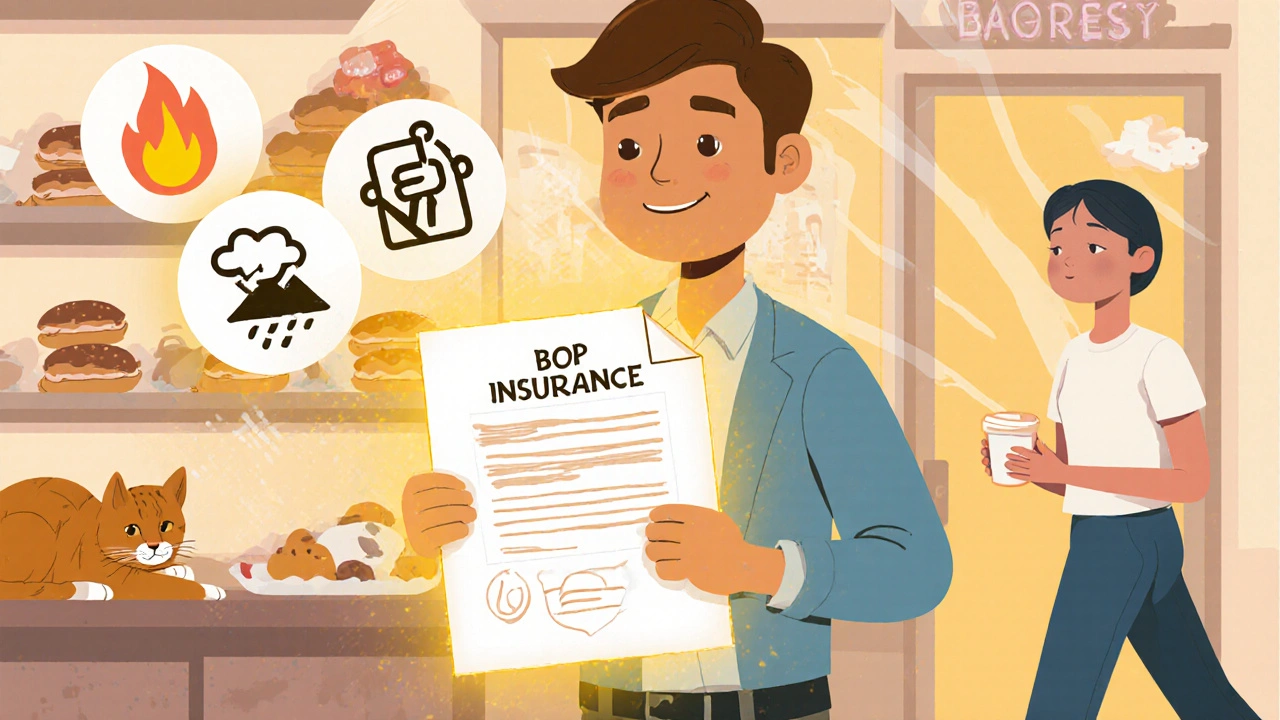Small Business Insurance: What You Need to Protect Your Business
When you run a small business, a privately owned company with limited staff and revenue, typically operating locally or online. Also known as microbusiness, it’s often your life’s work—your time, your savings, your reputation. One accident, one lawsuit, or one fire can wipe it all out. That’s where small business insurance, a collection of policies designed to protect business assets, income, and legal liability comes in. It’s not optional if you want to sleep at night.
Most small businesses need at least four key types of coverage. First, general liability insurance, covers third-party injuries or property damage caused by your business operations—like a customer slipping in your shop or a client suing over a faulty product. Second, commercial property insurance, protects your physical assets—office, equipment, inventory—from fire, theft, or natural disasters. Third, if you have employees, workers compensation, a state-mandated policy that pays medical bills and lost wages if an employee gets hurt on the job is legally required in almost every state. And fourth, many owners combine these into a business owner policy, a bundled package that simplifies coverage for small businesses with low to moderate risk. These aren’t just buzzwords—they’re the bare minimum to keep your business alive.
What most owners miss? Coverage gaps. A website hack? General liability won’t cover it—you need cyber liability. A delivery driver crashes while working for you? Your personal auto policy won’t touch it—you need commercial auto. A client claims you gave bad advice? Professional liability (errors and omissions) is what you need. And if you work from home, your homeowner’s policy won’t cover business equipment or client injuries. These aren’t edge cases—they’re everyday risks for online stores, freelancers, consultants, and service providers. The right insurance doesn’t just protect your stuff—it protects your ability to keep working.
There’s no one-size-fits-all plan. A freelance graphic designer needs different coverage than a food truck owner or a local HVAC contractor. The cost varies wildly, too—some policies start under $30 a month, others run hundreds. But the real mistake isn’t spending too much—it’s thinking you can skip it. A single claim without coverage can cost 10x what you’d pay in premiums over a year. You don’t need the fanciest plan. You just need the right one.
Below, you’ll find real guides that break down exactly what these policies cover, how to compare providers, what questions to ask, and how to avoid the traps that cost small business owners thousands. No fluff. No upsells. Just what works.
Small Business Insurance Bundles: BOPs for Startups
A Business Owner's Policy (BOP) bundles property and liability insurance into one affordable plan for startups. Learn what it covers, what it doesn't, and how to choose the right one for your business.
View More